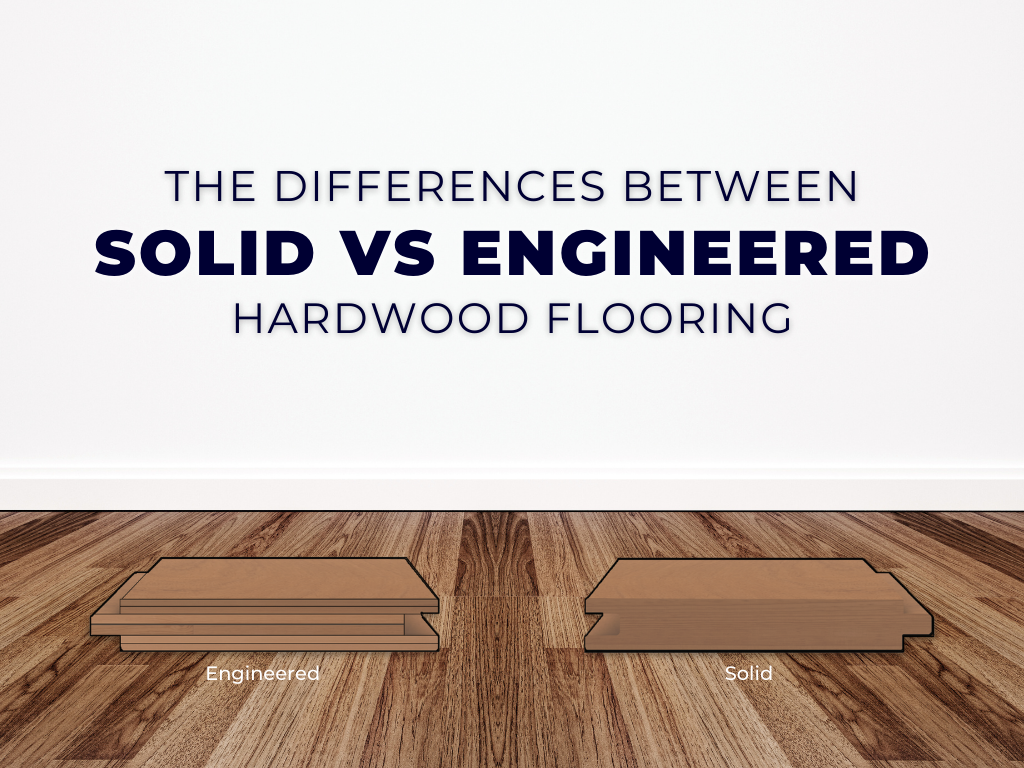The Differences Between Solid and Engineered Hardwood Flooring
When shopping for a new hardwood floor, you’ve likely come across the terms “solid” and “engineered” hardwood flooring. But do you know what these important flooring terms mean? If not, don’t worry. We’ll be answering everything you need to know. Here are the differences between solid and engineered hardwood flooring:
Let’s begin –
Introduction
There are many hardwood flooring options on the market today. Look at any flooring store and you’ll see hardwood flooring in nearly every color and wood species.
However, there are only two main types of hardwood flooring constructions – solid and engineered. While both of these flooring compositions may look the same visually, they are incredibly different with their own unique characteristics.
What are the Differences Between Solid and Engineered Hardwood Flooring?
Hardwood flooring comes in two different types: solid and engineered. Both types are made from 100% real hardwood, but there are some key differences between the two.
Here’s a quick rundown of the main differences between both types of hardwood flooring:
Solid Hardwood Flooring
Solid hardwood flooring is just that: solid.
Solid hardwood floors are made from a single piece of hardwood. This means that they are 100% wood. Due to their wood-only construction, they can typically be sanded down and refinished multiple times, making them a great choice for high-traffic areas or homes with pets and children.
However, solid hardwood floors are also more susceptible to moisture and temperature changes, so users should be wary of placing this type of flooring in areas of great temperature changes, high sun, and high humidity.
Engineered Hardwood Flooring
Engineered hardwood flooring is typically made from multiple layers of wood glued together. The top layer, or veneer, is a singular piece of hardwood, while the bottom layers, or substrate, are made of multi-ply or plywood.
This multi-material construction of the substrate makes the engineered hardwood plank more durable and stable than solid hardwood floors. However, depending on the thickness of the veneer, they may not be sanded and refinished as many times as solid hardwood.
Engineered hardwood floors are a better choice than solid hardwood flooring for locales with great temperature changes, with more sun or slightly elevated humidity (that’s still below 55%).
Engineered hardwood flooring is less likely to shrink or expand than solid hardwood, making it a more stable option.
In Conclusion
Both hardwood flooring types can add beauty and value to your home. When choosing between the two, it’s important to consider your lifestyle and budget. If you have small children or pets, engineered hardwood may be the better option since it’s more resistant to scratches and dents.
If you have any questions, contact us here.

